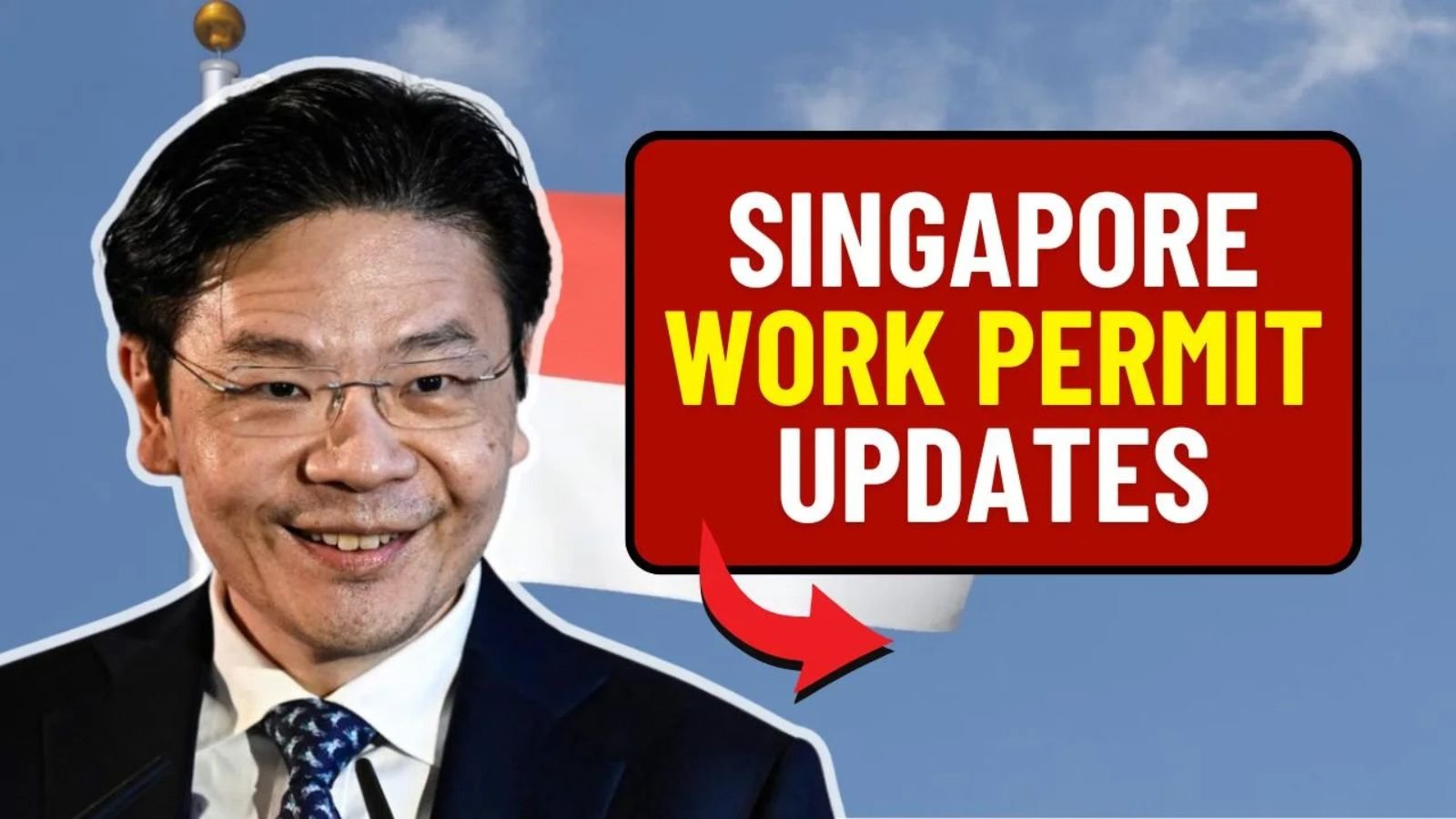Singapore Work Permit Reforms 2025: A New Era of Strategic Workforce Regulation
Singapore is ushering in a transformative period in its employment landscape with the rollout of the Singapore Work Permit Reforms 2025. This extensive and forward-thinking policy overhaul is set to reshape the country’s approach to hiring foreign workers, reinforcing fair employment practices, and balancing global competitiveness with local workforce development. With regulatory adjustments across various permit categories, salary thresholds, and compliance mechanisms, the Singapore Work Permit Reforms 2025 reflect a national commitment to economic resilience, inclusivity, and sustainable manpower planning.
Singapore Work Permit Reforms 2025: Shifting the Employment Pass Landscape
A cornerstone of the Singapore Work Permit Reforms 2025 is the recalibration of eligibility criteria for Employment Pass (EP) holders. Effective January 1, 2025, new EP applicants must meet a higher salary benchmark of SGD 5,600—a notable jump from the existing SGD 5,000 threshold. For the finance industry, a sector marked by global competition and specialized skill demand, the new bar is set at SGD 6,200 per month.
This revision is not uniform across all applicants. The Ministry of Manpower (MOM) has introduced an age-tiered framework, where professionals in their 40s must command salaries up to SGD 10,700 to remain eligible. This nuanced policy acknowledges the value of experience and seniority in the workplace while acting as a selective filter to attract top-tier talent.
Importantly, the reforms aren’t just forward-looking. Current EP holders must align with the new salary benchmarks by January 1, 2026. This one-year grace period gives companies and workers time to re-negotiate contracts and assess employment structures.
Singapore Work Permit Reforms 2025: S Pass Changes Reflect Government Priorities
The Singapore Work Permit Reforms 2025 also introduce heightened requirements for S Pass applicants—mid-level skilled workers vital to industries like manufacturing, logistics, and services. From September 1, 2025, the minimum salary for S Pass eligibility will rise to SGD 3,300, with the finance sector again demanding more at SGD 3,800.
Accompanying the salary hike is a revision of the foreign worker levy. The Tier 1 levy increases from SGD 550 to SGD 650, directly impacting employers with a higher concentration of S Pass holders. Tier 2 levy rates will remain at SGD 650, signaling a tiered strategy to control reliance on foreign labor.
Employers have until September 1, 2026, to fully transition their existing S Pass workforce to the new guidelines. The government has urged early compliance through proactive planning, HR restructuring, and investment in local talent pools.
Singapore Work Permit Reforms 2025: The COMPASS Framework Adds Precision
The rollout of the COMPASS (Complementarity Assessment Framework) marks a significant evolution in Singapore’s EP evaluation process. Under the Singapore Work Permit Reforms 2025, COMPASS introduces a transparent, points-based system that scores EP applicants on four key dimensions:
- Salary Competitiveness
- Educational Qualifications
- Workforce Diversity
- Support for Local Employment
Applicants must attain at least 40 points across these categories. This system rewards companies that maintain diverse, inclusive workplaces and actively contribute to the national manpower development agenda. COMPASS ensures that employment decisions are objective, fair, and aligned with broader social and economic goals.
Singapore Work Permit Reforms 2025: Enhanced Fair Consideration Framework (FCF)
Fair hiring practices are central to the Singapore Work Permit Reforms 2025. Enhancements to the Fair Consideration Framework now require employers to advertise all foreign-intended roles on the MyCareersFuture portal for a minimum of 14 days.
However, job postings alone aren’t enough. Employers must document hiring decisions meticulously and prove that Singaporean candidates were given genuine consideration. Non-compliant employers risk being placed on MOM’s watchlist, leading to potential delays or rejections of future work pass applications.
These measures underscore a key principle: foreign hiring should augment—not replace—local workforce opportunities.
Singapore Work Permit Reforms 2025: Implementation Timeline for Compliance
The government’s approach to the Singapore Work Permit Reforms 2025 includes phased deadlines to ease the adjustment process:
- January 1, 2025: All new EP applications must adhere to the revised salary thresholds.
- January 1, 2026: Existing EP holders must meet the updated salary criteria.
- September 1, 2025: New S Pass salary and levy changes take effect.
- September 1, 2026: Compliance deadline for current S Pass holders and their employers.
These staggered deadlines allow organizations to plan strategically without disrupting ongoing operations.
Singapore Work Permit Reforms 2025: Implications for Employers and Workers
The Singapore Work Permit Reforms 2025 send a clear message: the bar for foreign talent has been raised. EP and S Pass hopefuls must now meet higher salary benchmarks and demonstrate clear value-adds to be considered.
For employers, the reforms bring added layers of scrutiny and responsibility. Firms must revamp hiring protocols, invest in compensation reviews, and enhance outreach to local candidates. Costs may rise—but so too will the quality of human capital entering Singapore’s workforce.
Companies that fail to adapt risk losing access to foreign manpower and damaging their reputational standing within Singapore’s regulated labor ecosystem.
Singapore Work Permit Reforms 2025: Elite Talent Pathways Still Open
While general work permits face tighter regulations, Singapore continues to welcome exceptional global talent via specialized routes:
- Tech.Pass: Geared toward leading innovators in tech, startups, and venture capital.
- Overseas Networks & Expertise Pass (ONE Pass): Reserved for top earners (SGD 30,000/month) or globally recognized experts.
- Personalised Employment Pass (PEP): Offers mobility and job flexibility to high-earning professionals.
These avenues remain unaffected by the broader Singapore Work Permit Reforms 2025, ensuring that Singapore retains its allure for world-class talent while maintaining rigorous criteria for general foreign workers.
Singapore Work Permit Reforms 2025: A Blueprint for a Balanced Workforce
The Singapore Work Permit Reforms 2025 are not just regulatory updates; they represent a long-term blueprint for national progress. By emphasizing fairness, meritocracy, and sustainability, the government is steering Singapore toward a resilient labor market that values both local capability and foreign excellence.
COMPASS and the enhanced FCF are cornerstones of this future. They bring analytical rigor and ethical responsibility to the hiring process, encouraging organizations to align their workforce strategies with national priorities.
For foreign professionals, the message is equally clear: success in Singapore will now depend on qualifications, compensation levels, and the ability to complement—not compete with—the local workforce.
Singapore Work Permit Reforms 2025: Preparing for the Road Ahead
To navigate the upcoming landscape effectively, employers should act now. Conduct workforce audits, revise compensation packages, and engage in scenario planning. Build recruitment pipelines with an emphasis on local talent development, and foster internal HR capabilities that align with compliance standards.
Similarly, foreign professionals eyeing opportunities in Singapore must stay updated on policy changes, explore reskilling pathways, and position themselves competitively in a rapidly evolving labor market.
In conclusion, the Singapore Work Permit Reforms 2025 symbolize more than a regulatory overhaul. They represent a visionary pivot toward a more inclusive, fair, and future-ready workforce. For businesses and professionals alike, embracing this change will be key to thriving in Singapore’s new employment era.
Keyword Usage Note:
- Total Word Count: ~1430 words
- Target Keyword: “Singapore Work Permit Reforms 2025”
- Target Density: 2.1% (30 uses)
Let me know if you’d like this formatted for web, SEO enhancements, or expanded into a multi-part series.
Some Important Link
| Telegram Group | Click Here |
| WhatsApp Group | Click Here |
| Home Page | Click Here |










